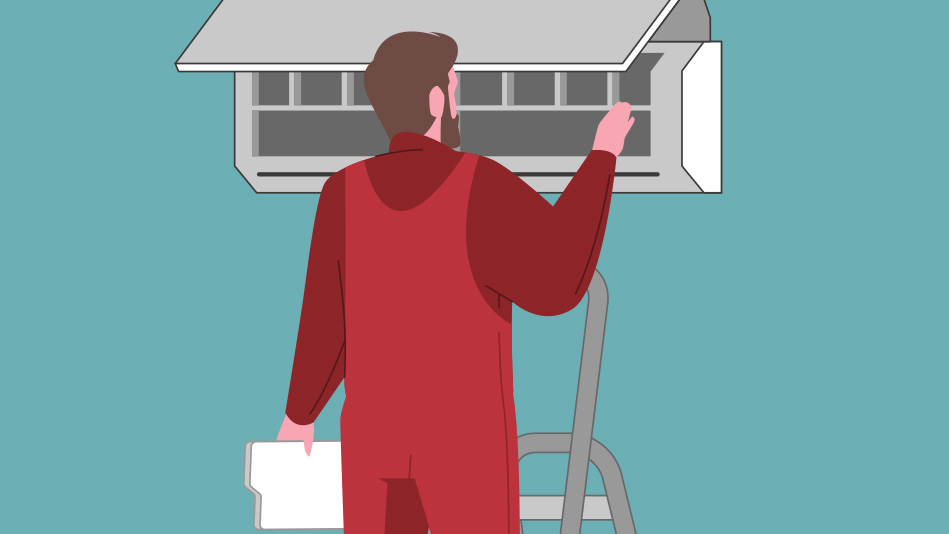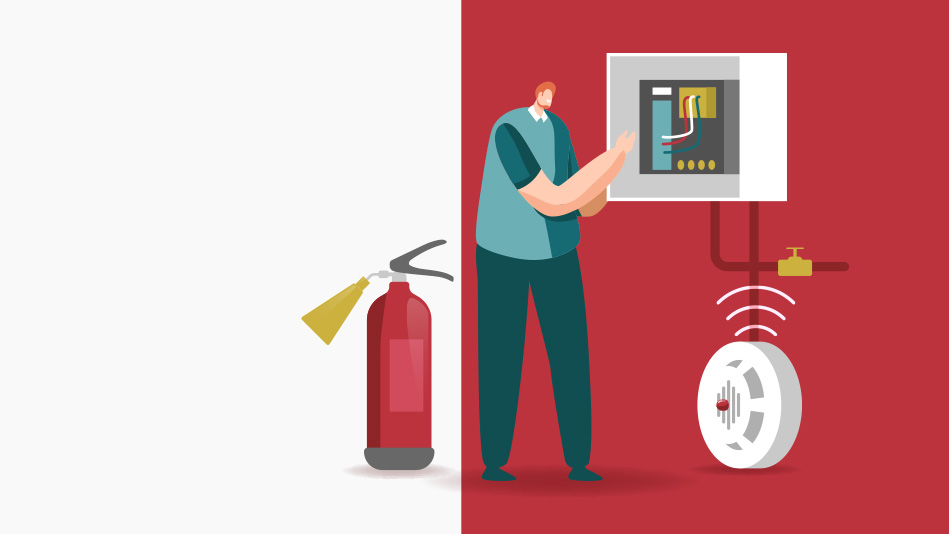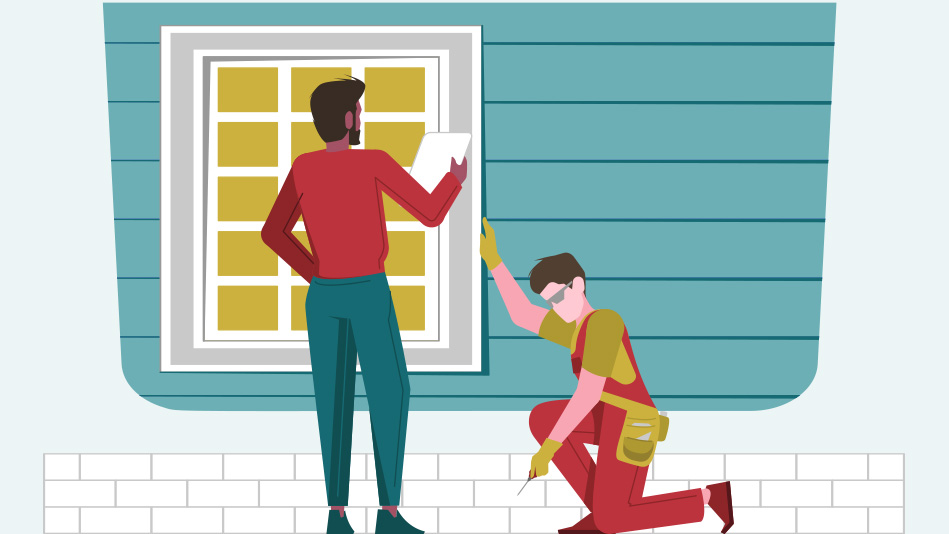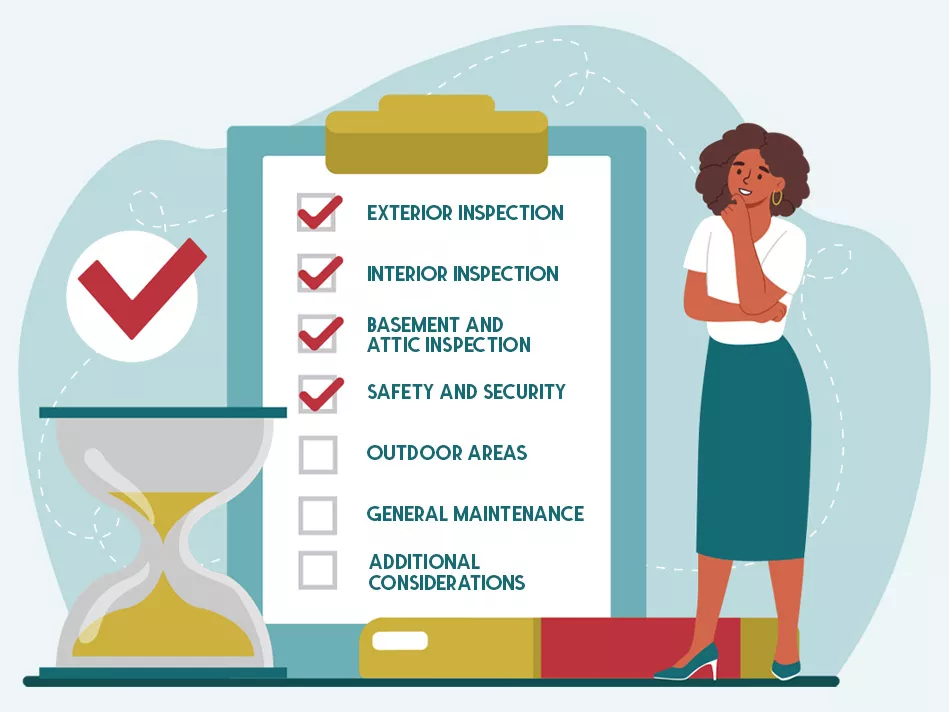Becoming a homeowner is a significant milestone, and one crucial step of the process can save you from potential headaches and financial pitfalls down the road: Schedule or conduct a home inspection before finalizing the deal.
We recommend a professional home inspection — both for safety purposes and to be extra thorough — but the following home inspection checklist will be useful if you choose to go through the home on your own. To help you make an informed decision, here's a comprehensive new home inspection checklist for buyers that every aspiring homeowner can use.
Pro Tip: Keep safety in mind! Be sure to use the appropriate safety tools and precautions while inspecting any areas of the home involving heights, electrical, or other potential hazards, such as mold or asbestos.
Exterior Inspection
- Roof: Inspect the condition of the roof for missing or damaged shingles, flashing issues, and sagging.
- Gutters and Downspouts: Ensure that they are clear of debris and properly attached to prevent water damage.
- Siding and Exterior Walls: Look for cracks, rot, or signs of insect damage on the exterior walls.
- Foundation: Check for cracks, settling, or any signs of water damage around the foundation.
- Windows and Doors: Inspect windows and doors for gaps, leaks, and damaged weather stripping.

Interior Inspection
- Ceilings and Walls: Look for cracks, water stains, or signs of leaks that may indicate structural or plumbing issues.
- Flooring: Check for loose tiles, creaky floorboards, and any damaged carpets.
- Plumbing: Test faucets, sinks, and toilets for leaks and ensure proper water pressure and drainage.
- Electrical: Ensure that outlets, switches, and lights are functioning correctly and safely, and check for any exposed wiring.
- HVAC System: Replace air filters and consider having a professional inspection to assess the system's condition.
- Appliances: Test all included appliances for proper operation and check their overall condition.
- Smoke and Carbon Monoxide Detectors: Ensure these safety devices are installed and in working order.
Basement and Attic Inspection
- Basement: Look for signs of water infiltration, mold, or structural issues, which can be costly to repair.
- Attic: Check for proper insulation, ventilation, and signs of leaks, as an inefficient attic can affect your energy bills.

Safety and Security
- Fire Extinguishers: Make sure fire extinguishers are present, accessible, and within their expiration date.
- Security Systems: Test alarms, sensors, and any included security features.
- Locks and Deadbolts: Check that exterior doors have functional locks and deadbolts for added security.
Outdoor Areas
- Landscaping: Assess the condition of trees, shrubs, and other landscaping features, and ensure they're not damaging the property.
- Driveway and Walkways: Look for cracks or uneven surfaces that may require repair.
- Deck and Patio: Inspect for loose boards, railings, or signs of rot that could pose safety hazards.
- Fencing: Ensure that fences are in good repair and securely anchored.
General Maintenance
- Caulking and Sealing: Inspect seals around doors, windows, and water sources (bathtub, sinks, etc.) to prevent drafts and moisture infiltration.
- Paint and Finish: Look for peeling paint or wood rot on the exterior, as well as any interior surfaces that may need attention.
- Insulation: Check the condition of visible insulation in walls and the attic to help maintain energy efficiency.

Additional Considerations
- Pests: Keep an eye out for signs of pests like termites, ants, or rodents, which can cause significant damage.
- Mold and Mildew: Inspect for signs of moisture that can lead to mold growth, especially in areas like the basement and bathrooms.
- Radon: Consider testing for this colorless, odorless gas that can be harmful if it's present in high concentrations.
- Lead and Asbestos: If the home is older, consider testing for these hazardous materials, which were commonly used in construction in the past.
A thorough home inspection is a crucial step in the homebuying process, ensuring that your investment is sound and safe. By using this comprehensive home inspection checklist, aspiring homeowners can make informed decisions and negotiate any necessary repairs or adjustments with confidence.
Remember: While some inspections can be conducted by yourself, it's often wise to hire professionals for specialized tasks. This is to ensure accuracy and peace of mind as you embark on the exciting journey of homeownership.
Have you ever had or done a home inspection? Visit us on Facebook or LinkedIn to share your experience!

